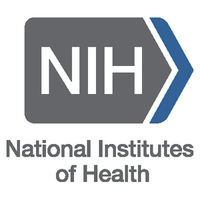预约演示
更新于:2025-12-05

NYU Langone Medical Center
更新于:2025-12-05
概览
标签
感染
心血管疾病
皮肤和肌肉骨骼疾病
小分子化药
双特异性抗体
单克隆抗体
疾病领域得分
一眼洞穿机构专注的疾病领域
暂无数据
技术平台
公司药物应用最多的技术
暂无数据
靶点
公司最常开发的靶点
暂无数据
| 排名前五的药物类型 | 数量 |
|---|---|
| 小分子化药 | 2 |
| 双特异性抗体 | 1 |
| 单克隆抗体 | 1 |
关联
4
项与 NYU Langone Medical Center 相关的药物作用机制 LAG3抑制剂 [+1] |
在研适应症 |
非在研适应症- |
最高研发阶段临床前 |
首次获批国家/地区- |
首次获批日期- |
靶点 |
作用机制 A2aR激动剂 |
在研适应症 |
非在研适应症- |
最高研发阶段临床前 |
首次获批国家/地区- |
首次获批日期- |
1
项与 NYU Langone Medical Center 相关的临床试验NCT03936361
STATINS USE IN INTRACEREBRAL HEMORRHAGE PATIENTS
The SATURN trial aims to determine whether continuation vs. discontinuation of statin drugs after spontaneous lobar intracerebral hemorrhage (ICH) is the best strategy; and whether the decision to continue/discontinue statins should be influenced by an individual's Apolipoprotein-E (APOE) genotype.
An MRI ancillary study (SATURN MRI), in a subset of SATURN participants , will evaluate the effects of continuation vs. discontinuation of statin drugs on hemorrhagic and ischemic MRI markers of cerebral small vessel disease, and whether the presence/burden of hemorrhagic markers (i.e. cerebral microbleeds and/or cortical superficial siderosis) on baseline MRI influences the risk of ICH recurrence on/off statin therapy.
An MRI ancillary study (SATURN MRI), in a subset of SATURN participants , will evaluate the effects of continuation vs. discontinuation of statin drugs on hemorrhagic and ischemic MRI markers of cerebral small vessel disease, and whether the presence/burden of hemorrhagic markers (i.e. cerebral microbleeds and/or cortical superficial siderosis) on baseline MRI influences the risk of ICH recurrence on/off statin therapy.
开始日期2020-06-10 |
申办/合作机构 |
100 项与 NYU Langone Medical Center 相关的临床结果
登录后查看更多信息
0 项与 NYU Langone Medical Center 相关的专利(医药)
登录后查看更多信息
2,237
项与 NYU Langone Medical Center 相关的文献(医药)2026-02-01·PEDIATRIC NEUROLOGY
Incorporating Measures of Cognitive Processing Speed and Brain Volume in Clinical Management of Pediatric Onset Multiple Sclerosis
Article
作者: Lustberg, Matthew ; Billiet, Thibo ; Chen, Jingyun ; Sosa, Anna ; Denissen, Stijn ; Krupp, Lauren ; O'Neill, Kimberly A ; Couvreur, Laura ; Pehel, Shayna ; Ribbens, Annemie
BACKGROUND:
While cognitive processing and brain volume assessments are commonly used in multiple sclerosis (MS) research, they are not routinely incorporated into clinical care. Advances in neuroimaging software now allow for brain volume measurement to be incorporated into standard practice and guide clinical decision-making.
METHODS:
In this single-center, outpatient, cohort study, pediatric-onset multiple sclerosis (POMS) patients underwent at least two volumetric brain magnetic resonance imagings (MRIs) and two Symbol Digit Modalities Tests (SDMT) at least 6 months apart. Associations were analyzed using Pearson's correlation coefficient and linear regressions.
RESULTS:
Forty patients with POMS were included. The first volumetric brain MRI occurred at a median of 2.7 years after symptom onset. At the first volumetric MRI, 12% of patients had white matter brain volumes within 1% of normative values (n = 2000 healthy controls). Whole brain volume percentile (r = 0.4, P = 0.01), white matter percentile (r = 0.4, P = 0.01), and white matter lesion volume (r = -0.4, P = 0.005) were associated with SDMT score. Annualized percent brain volume change of the hippocampus (measured a median of 1.6 years apart) significantly correlated with follow-up SDMT (r = 0.4, P = 0.02), and annualized percent brain volume change of the thalamus correlated with annual change in SDMT z-score (r = 0.4, P = 0.009).
CONCLUSIONS:
Application of new software allows for volumetric assessment to be incorporated into clinical scans and provides clinicians with added data for patient management. This is critical for patients with POMS as the neurological examination often shows few to no abnormalities. Furthermore, a subset of POMS patients have smaller than expected brain volume which links to subsequent poorer cognitive performance.
2026-01-01·GAIT & POSTURE
The contribution of lower limbs to Pelvic Tilt: A baseline and postoperative full-body analysis
Article
作者: Kelly, Michael ; Klineberg, Eric ; Shaffrey, Christopher ; Lenke, Lawrence ; Smith, Justin S ; Kim, Han Jo ; Ames, Christopher ; Passias, Peter ; Schwab, Frank ; Lafage, Renaud ; Daniels, Alan ; Bess, Shay ; Lewis, Stephen ; Lafage, Virginie ; Burton, Douglas ; Khalifé, Marc ; Diebo, Bassel ; Gupta, Munish ; Kebaish, Khaled
BACKGROUND:
Pelvic tilt (PT) has been a parameter of interest in biomechanics of spinal deformity for decades. It remains unclear how patients achieve different values of PT pre- and postoperatively.
RESEARCH QUESTION:
This study aimed at assessing the relative contribution of hip extension, knee flexion and ankle extension to PT, factoring malalignment and hip osteoarthritis (OA).
METHODS:
This retrospective study included Adult Spinal Deformity (ASD) patients with preoperative full-body radiographs from a multicenter database, with a sub-analysis of patients with complete 1-year follow-up (1yFU). Age and PI-adjusted normative PT (NormPT) and offset from norm (OffPT) were calculated, as for sacro-femoral angle (SFA), knee flexion angle (KA) and ankle angle (AA). Multivariate linear regression models controlling for age, frailty, severe hip OA, pelvic incidence (PI), SFA, and KA were used to predict PT at baseline, and offset from NormPT. Another model was generated to predict PT change.
RESULTS:
600 patients at baseline and 336 with 1yFU were included. Mean age was 61 ± 15, 70.2 % were females and 40 % were revision cases. At baseline, regression analysis revealed that 0.9° increase in hip extension (SFA) and a 0.6° increase in knee flexion (KA) amounted to 1° increase in PT. Knee and ankle contribution to PT significantly increased for while hip extension decreased as TPA augmented (p < 0.001). Patients with low deformity compensated with hip extension, while knee flexion was the largest contributor of PT in high deformity patients: 70.7 % (44.7 - 111.9). Median contribution of knee flexion to PT was larger for patients who presented hip OA.
SIGNIFICANCE:
This study demonstrated that PT is a phenomenon driven by extension of the hips and flexion of the knees and proposed values to predict PT from those two compensatory mechanisms. Magnitude of spinal deformity and hip OA alters the magnitude of SFA/KA contribution to PT.
2025-12-01·ARCHIVOS DE BRONCONEUMOLOGIA
SPIRIT 2025 and CONSORT 2025 Statements: Guidance Tools to Ensure Clinical Trial Transparency
作者: Dal-Ré, Rafael ; Caplan, Arthur L
223
项与 NYU Langone Medical Center 相关的新闻(医药)2025-12-02
LONG ISLAND, NY, UNITED STATES, December 2, 2025 /
EINPresswire.com
/ --
Dr. Jeremy M. Liff
, one of the region's most extensively trained neurovascular specialists, is making it easier for patients across Long Island and New York City to access advanced, catheter-based treatments for brain aneurysms, carotid artery disease, and other complex vascular conditions of the brain and spine.
Dr. Liff holds a rare triple board certification in Neurology, Vascular Neurology, and Endovascular Neurosurgery. That means he's trained not just to diagnose neurovascular conditions, but to treat them using some of the most sophisticated minimally invasive techniques available today. He works with patients facing unruptured and ruptured brain aneurysms, carotid stenosis, chronic subdural hematomas, arteriovenous malformations, intracranial stenosis, and a range of other conditions affecting blood flow to and within the brain.
His approach is interventional and image guided. Using real-time imaging and tiny catheters threaded through blood vessels, Dr. Liff can seal off aneurysms before they rupture, open blocked carotid and intracranial arteries, treat bleeding in the brain, and address vascular malformations without traditional open surgery. The procedures he performs include aneurysm coiling and stenting, carotid artery stenting for stenosis, intracranial angioplasty and stenting, and mechanical thrombectomy when needed. He also specializes in middle meningeal artery embolization for patients with chronic subdural hematomas, embolization for vascular tumors and AVMs, venous sinus stenting for pulsatile tinnitus and intracranial hypertension, and treatment for severe epistaxis (nosebleeds) that won't stop.
Beyond neurovascular care, Dr. Liff treats patients with complex spine conditions through lumbar epidural injections and myelography, and administers intrathecal chemotherapy for cancers affecting the central nervous system. He performs these procedures at three respected hospitals: St. Francis Hospital in Roslyn, NYU Langone Hospital Long Island in Mineola, and Lenox Hill Hospital in Manhattan.
Dr. Liff'
s training began at Johns Hopkins University, where he studied Cognitive Science, and continued at SUNY Upstate Medical University, where he earned his medical degree. He completed his neurology residency at Albert Einstein College of Medicine and Montefiore Medical Center, serving as Chief Resident. From there, he pursued fellowship training in Vascular Neurology at Mt. Sinai Hospital and Endovascular Neurosurgery at NYU Langone Medical Center. His research has been presented at the American Academy of Neurology and at the LINNC Conference in Paris, and his work has appeared in journals like Clinical Neurology and Neurosurgery and the Journal of ECT. He's a senior member of the Society of Neurointerventional Surgery.
A Long Island native, Dr. Liff has built his practice around a simple principle: patients shouldn't have to travel far for specialized neurovascular care. "My goal is to make sure patients on Long Island and in New York City have access to advanced, minimally invasive treatment options for conditions like aneurysms, carotid disease, and other vascular problems affecting the brain," he said.
In addition to aneurysms and carotid disease, Dr. Liff treats patients with intracranial artery stenosis, venous outflow problems like pulsatile tinnitus and intracranial hypertension, arteriovenous malformations, chronic subdural hematomas, lumbar spine disease, and sciatica.
Patients can schedule an appointment at Dr. Liff's office at 2200 Northern Boulevard, Suite 207, Greenvale, NY 11548. The office can be reached at 516-612-9409 or 516-466-1029, or by email at jliff@intneuro.org.
Media Contact:
Ryan McCormick
Goldman McCormick PR
+1 516-901-1103
email us here
Legal Disclaimer:
EIN Presswire provides this news content "as is" without warranty of any kind. We do not accept any responsibility or liability
for the accuracy, content, images, videos, licenses, completeness, legality, or reliability of the information contained in this
article. If you have any complaints or copyright issues related to this article, kindly contact the author above.

2025-11-25
Seven posters to be presented, including new X-TOLE OLE data supporting the ability to attain and regain extended periods of seizure freedom with long-term use of azetukalnerData will also highlight the impact of depression and burden of titration on patients with epilepsy, as well as new pre-clinical data from the Company’s NaV1.1 program in Dravet syndrome VANCOUVER, British Columbia and BOSTON, MA, Nov. 25, 2025 (GLOBE NEWSWIRE) -- Xenon Pharmaceuticals Inc. (Nasdaq: XENE), a neuroscience-focused biopharmaceutical company dedicated to drug discovery, clinical development and commercialization of life-changing therapeutics for patients in need, today announced multiple presentations at the upcoming American Epilepsy Society Annual Meeting (AES 2025), taking place December 5-9, 2025 at the Georgia World Congress Center in Atlanta, Georgia. Seven posters will be presented, including new long-term data from the ongoing X-TOLE open-label extension study of azetukalner in patients with focal onset seizures (FOS), and data characterizing patterns of seizure freedom epochs with extended use of azetukalner, which could inform future clinical practice. Xenon’s poster presentations also include findings on the impact of depression on epilepsy patients, as well as new pre-clinical data from the Company’s early-stage NaV1.1 program in Dravet syndrome. Long-Term Data for Azetukalner in Epilepsy
Poster Presentation #1.377: Characterization of Long-Term Seizure Freedom in the Ongoing Open-Label Extension of X-TOLE: Potential Implications for Future Clinical PracticeAuthor Session: Saturday, December 6 from 12:00 – 2:00 pm ET in Exhibit Hall B2, Poster Session 1 Poster Presentation #3.356: Long-Term Safety and Efficacy of Azetukalner, a Novel, Potent KV7 Potassium Channel Opener, in Adults with Focal Epilepsy: ≥48-Month Interim Analysis of the Ongoing 7-Year X-TOLE Open-Label ExtensionAuthor Session: Monday, December 8 from 12:00 – 1:45 pm ET in Poster Hall B3, Poster Session 3 Epilepsy Real World Studies Poster Presentation #1.364: Depression Symptom Experience Among Patients with Epilepsy Reporting a Diagnosis of Focal Seizures (FS): A Patient-Reported Outcomes StudyAuthor Session: Saturday, December 6 from 12:00 – 2:00 pm ET in Exhibit Hall B2, Poster Session 1 Poster Presentation #1.365: Impact of Depression on Outcomes and Treatment Patterns in Patients with Newly Diagnosed Epilepsy: A Retrospective Claims AnalysisAuthor Session: Saturday, December 6 from 12:00 – 2:00 pm ET in Exhibit Hall B2, Poster Session 1 Poster Presentation #2.325: Multivariable Models Reporting Increased Economic and Humanistic Burden Among Patients With Epilepsy Reporting Focal Seizures (FS) Experiencing Moderate to Severe Depression SymptomsAuthor Session: Sunday, December 7 from 12:00 – 2:00 pm ET in Exhibit Hall B2, Poster Session 2 Poster Presentation #2.367: Clinical Practice and Patient Burden Associated with Anti-Seizure Medication Titration: A Thematic AnalysisAuthor Session: Sunday, December 7 from 12:00 – 2:00 pm ET in Exhibit Hall B2, Poster Session 2 Early-stage Pipeline Data Poster Presentation #3.181: Selective Potentiation of NaV1.1 Channels in Dravet Mice Suppresses Spontaneous Seizures, Prevents SUDEP and Increases Long Term PotentiationAuthor Session: Monday, December 8 from 12:00 – 1:45 pm ET in Poster Hall B3, Poster Session 3 Satellite Symposium Xenon is hosting a symposium in partnership with the Epilepsy Foundation of America (EFA) entitled “Exploring Depression and Anxiety in Epilepsy: A Practical Dialogue with Patients and Providers” on Saturday, December 6, 2025 from 6:00 – 9:00 pm ET in Room B213. The panel presentation will feature several representatives from EFA, as well as Dr. Jacqueline A. French, epileptologist and neurologist with the NYU Langone Comprehensive Epilepsy Center, Dr. Andres M. Kanner, Professor of Clinical Neurology and Director of the Comprehensive Epilepsy Center and Chief of the Epilepsy Division at the Department of Neurology of the University of Miami, Miller School of Medicine, and Dr. Heidi Marie Munger Clary, Associate Professor of Neurology, Epilepsy Fellowship Director and Director of Faculty Research Development at Wake Forest University School of Medicine. Scientific Exhibit Xenon is also hosting a Scientific Exhibit to provide an overview of its clinical- and pre-clinical-stage research programs on Sunday, December 7, 2025 from 2:00 – 5:00 pm ET in Room B304/B305. For more information about Xenon’s planned participation at AES 2025, please visit this link. Posters will be available after the live presentations. About Xenon Pharmaceuticals Inc.Xenon Pharmaceuticals (Nasdaq: XENE) is a neuroscience-focused biopharmaceutical company dedicated to drug discovery, clinical development, and commercialization of life-changing therapeutics for patients in need. Xenon’s lead molecule, azetukalner, is a novel, potent, selective KV7 potassium channel opener in Phase 3 clinical trials for the treatment of epilepsy, major depressive disorder (MDD) and bipolar depression (BPD). Xenon is also advancing an early-stage portfolio of multiple promising potassium and sodium channel modulators, including KV7 and NaV1.7 programs in Phase 1 development for the potential treatment of pain. Xenon has offices in Vancouver, British Columbia, and Boston, Massachusetts. For more information, visit www.xenon-pharma.com and follow us on LinkedIn and X. Xenon and the Xenon logo are registered trademarks or trademarks of Xenon Pharmaceuticals Inc. in the US, Canada, and elsewhere. All other trademarks belong to their respective owner. Safe Harbor StatementThis press release contains forward-looking statements within the meaning of Section 27A of the Securities Act of 1933, as amended, and Section 21E of the Securities Exchange Act of 1934, as amended, and the Private Securities Litigation Reform Act of 1995 and Canadian securities laws. These forward-looking statements are not based on historical fact, and include statements regarding the timing of and potential results from clinical studies; the potential efficacy, safety profile, future development plans in current and anticipated indications, addressable market, regulatory success and commercial potential of our and our partners’ product candidates; the efficacy of our clinical study designs; our ability to successfully develop and achieve milestones in our azetukalner and other pipeline and development programs, including the anticipated filing of INDs and NDAs; the timing and results of our interactions with regulators; our ability to successfully develop and obtain regulatory approval of azetukalner and our other product candidates; and anticipated timing of topline data readout from our clinical studies of azetukalner. These forward-looking statements are based on current assumptions that involve risks, uncertainties and other factors that may cause the actual results, events, or developments to be materially different from those expressed or implied by such forward-looking statements. These risks and uncertainties, many of which are beyond our control, include, but are not limited to: clinical studies may not demonstrate safety and efficacy of any of our or our collaborators’ product candidates; promising results from pre-clinical development activities or early clinical study results may not be replicated in later clinical studies; our assumptions regarding our planned expenditures and sufficiency of our cash to fund operations may be incorrect; our ongoing discovery and pre-clinical efforts may not yield additional product candidates; any of our or our collaborators’ product candidates, including azetukalner, may fail in development, may not receive required regulatory approvals, or may be delayed to a point where they are not commercially viable; we may not achieve additional milestones in our proprietary or partnered programs; regulatory agencies may impose additional requirements or delay the initiation or completion of clinical studies; the impact of market, industry, and regulatory conditions on clinical study enrollment; the impact of competition; the impact of expanded product development and clinical activities on operating expenses; the impact of new or changing laws and regulations; the impact of unstable economic conditions in the general domestic and global economic markets; adverse conditions from geopolitical events; as well as the other risks identified in our filings with the U.S. Securities and Exchange Commission and the securities commissions in British Columbia, Alberta, and Ontario. These forward-looking statements speak only as of the date hereof and we assume no obligation to update these forward-looking statements, and readers are cautioned not to place undue reliance on such forward-looking statements. Xenon and the Xenon logo are registered trademarks or trademarks of Xenon Pharmaceuticals Inc. in the US, Canada, and elsewhere. All other trademarks belong to their respective owner. Contact:Colleen AlabisoSenior Vice President, Corporate Affairs(617) 671-9238Media: media@xenon-pharma.comInvestors: investors@xenon-pharma.com
临床1期临床3期
2025-11-17
·今日头条
糖尿病及其并发症已构成全球性重大公共卫生挑战,全球患者总数超 5 亿,其中并发症是导致患者死亡与残疾的首要原因。传统降糖疗法虽能控制血糖水平,但难以阻止晚期糖基化终产物(AGEs)介导的组织损伤,约 40% 血糖控制达标的患者仍会进展为心血管疾病、肾功能衰竭或伤口愈合障碍等严重并发症。纽约大学朗格尼医学中心研究团队在《细胞化学生物学》发表的突破性研究,开发出小分子化合物 RAGE406R,通过特异性阻断 RAGE 受体与 DIAPH1 蛋白的相互作用,从分子源头切断炎症信号传导通路。动物实验证实,该化合物对 1 型和 2 型糖尿病模型均有效,可显著加速伤口愈合、减轻心肾组织损伤,且不影响血糖代谢。本文系统阐述 RAGE406R 的分子设计原理、作用机制、药理活性及临床转化潜力,深入分析其在糖尿病并发症精准治疗中的创新价值,同时探讨当前糖尿病并发症治疗的困境与多维度解决方案的发展趋势,为代谢性疾病的靶向药物研发提供科学参考。
一、引言:糖尿病并发症的治疗困境与突破契机
1.1 全球糖尿病流行现状与并发症负担
糖尿病作为一种以高血糖为核心特征的慢性代谢性疾病,已呈现全球爆发态势。国际糖尿病联盟(IDF)数据显示,2024 年全球 20-79 岁人群糖尿病患病率达 6.1%,患者总数突破 5.37 亿,预计 2045 年将增至 7.83 亿。中国作为糖尿病负担最重的国家,患者规模已达 1.41 亿,其中仅 36.7% 的患者血糖控制达标(HbA1c<7%),超过半数患者面临并发症高风险。糖尿病并发症涵盖微血管病变(肾病、视网膜病变、神经病变)和大血管病变(心血管疾病、脑血管疾病),以及伤口愈合障碍等,其病理本质是长期高血糖诱导的 AGEs 蓄积引发的全身性炎症反应与组织损伤。据统计,糖尿病患者心血管疾病发生率是非糖尿病人群的 2-4 倍,糖尿病肾病占终末期肾病病因的 40% 以上,2 型糖尿病男性患者中 52% 存在勃起功能障碍等神经血管并发症,这些并发症导致的医疗支出占糖尿病总医疗费用的 60%-80%。
1.2 传统治疗策略的局限性与机制瓶颈
当前临床糖尿病治疗以血糖控制为核心,主要包括胰岛素替代疗法、口服降糖药(如二甲双胍、磺脲类)及新型降糖药物(GLP-1 受体激动剂、SGLT2 抑制剂)。尽管这些药物能有效降低血糖,部分新型药物还显示出一定的心血管保护作用,但均无法从根本上阻断并发症的发生发展。其核心原因在于,糖尿病并发症的驱动机制并非高血糖本身,而是高血糖诱导的 AGEs 与细胞表面受体结合引发的下游病理级联反应。即使血糖控制在理想范围,体内已形成的 AGEs 仍会持续积累,通过非酶促糖基化修饰细胞内蛋白质、脂质和核酸,破坏组织细胞功能。此外,糖尿病患者常存在 "代谢记忆" 现象,早期血糖波动导致的分子损伤会持续存在,即使后续血糖得到控制,并发症风险仍显著升高。这一机制瓶颈导致传统降糖疗法难以满足临床对并发症防治的迫切需求,亟需开发针对并发症发病分子机制的靶向干预策略。
1.3 RAGE-DIAPH1 通路:并发症防治的关键靶点
纽约大学格罗斯曼医学院安・玛丽・施密特教授团队长期致力于糖尿病并发症分子机制研究,其前期工作已明确 AGEs 受体(RAGE)介导的信号通路是并发症发生的核心枢纽。RAGE 作为免疫球蛋白超家族成员,广泛表达于内皮细胞、巨噬细胞、心肌细胞、肾系膜细胞等多种组织细胞表面。当 AGEs 与 RAGE 结合后,会诱导受体构象改变,使其胞内结构域与下游效应蛋白 DIAPH1(成束蛋白同源物 1)结合,进而激活肌动蛋白细胞骨架重排,启动 NF-κB 等炎症通路,促进促炎因子(IL-1β、TNF-α)和趋化因子(CCL2)释放,最终导致组织损伤与修复功能障碍。这一通路的发现为并发症治疗提供了全新靶点,而 RAGE406R 的开发正是针对这一关键分子相互作用的精准干预,标志着糖尿病治疗从 "血糖控制" 向 "损伤阻断" 的范式转变。
二、RAGE406R 的分子设计与优化
2.1 靶点验证与先导化合物筛选
RAGE-DIAPH1 相互作用作为并发症发病的关键节点,其特异性阻断具有重要治疗价值。研究团队首先通过免疫共沉淀、荧光共振能量转移(FRET)等技术,验证了 AGEs 诱导下 RAGE 与 DIAPH1 的特异性结合,且这一结合在糖尿病患者组织样本中显著增强。为筛选能够阻断该相互作用的小分子化合物,团队构建了基于荧光偏振的高通量筛选体系,对包含 58000 个化合物的化学库进行系统性筛选。筛选标准包括:对 RAGE-DIAPH1 结合的抑制活性(IC50<10μM)、对细胞的低毒性(CC50>100μM)及良好的水溶性与细胞膜穿透性。通过多轮筛选与验证,最终获得先导化合物 RAGE229,该化合物在体外实验中显示出较强的结合抑制活性(IC50=7.3μM),并能显著抑制 AGEs 诱导的炎症因子释放。
2.2 结构优化与安全性提升
尽管 RAGE229 具有良好的药理活性,但在 Ames 试验(沙门氏菌回复突变试验)中发现其存在潜在致突变风险,推测与分子结构中的芳香胺基团相关。为解决这一安全性问题,纽约州立大学奥尔巴尼分校化学系团队采用基于结构的药物设计策略,通过分子对接技术模拟 RAGE 与 DIAPH1 的结合口袋,对 RAGE229 进行结构修饰:去除芳香胺等潜在致癌基团,引入亲水性杂环结构以改善水溶性;优化分子骨架的空间构象,增强与 RAGE 胞内结构域的结合特异性。经过多轮结构优化与活性筛选,最终获得优化产物 RAGE406R。该化合物保留了对 RAGE-DIAPH1 结合的高效抑制活性(IC50=5.8μM),同时在 Ames 试验、染色体畸变试验等标准安全性评估中均显示阴性结果,细胞毒性显著降低(CC50=237μM),为后续临床转化奠定了安全基础。
2.3 分子作用机制的验证
通过表面等离子体共振(SPR)技术检测证实,RAGE406R 与 RAGE 胞内结构域的结合常数(KD)为 3.2μM,显著高于 DIAPH1 与 RAGE 的结合常数(KD=12.7μM),表明其具有更强的结合亲和力。竞争结合实验显示,RAGE406R 通过竞争性占据 DIAPH1 在 RAGE 上的结合位点,阻止两者相互作用,且这一竞争作用具有浓度依赖性。免疫荧光实验进一步证实,在 AGEs 刺激的内皮细胞中,RAGE406R 处理可显著减少 RAGE 与 DIAPH1 的共定位现象,同时抑制肌动蛋白丝的异常聚集。Western blot 分析显示,RAGE406R 能有效阻断 AGEs 诱导的 NF-κB 磷酸化与核转移,减少 IL-1β、TNF-α、CCL2 等炎症因子的表达,而对 RAGE 的正常生理功能无明显影响,体现了良好的作用特异性。
三、RAGE406R 的药理活性与作用机制
3.1 对糖尿病伤口愈合的促进作用
糖尿病伤口愈合障碍的核心病理机制是炎症微环境失衡与组织修复能力下降。研究团队采用两种糖尿病动物模型进行验证:1 型糖尿病(链脲佐菌素诱导)小鼠与 2 型糖尿病(db/db)肥胖小鼠。在伤口愈合实验中,将 RAGE406R(10μM)制成外用凝胶涂抹于小鼠背部全层皮肤缺损伤口,每日 1 次,连续观察 14 天。结果显示,与对照组相比,RAGE406R 治疗组 1 型糖尿病小鼠伤口愈合时间缩短 31%,2 型糖尿病小鼠伤口愈合时间缩短 27%,且雌雄小鼠均表现出显著疗效。组织学分析显示,治疗组伤口处胶原蛋白沉积更规律,Ⅰ 型 /Ⅲ 型胶原蛋白比例趋于正常,新生血管密度增加 42%,表皮再生速度加快 35%。
其促进愈合的机制主要通过重塑免疫微环境实现:RAGE406R 显著降低伤口局部 CCL2 水平(下降 58%),减少过度促炎型巨噬细胞(M1 型)聚集;同时促进巨噬细胞向修复表型(M2 型)转化,使 M2/M1 比例提升 2.3 倍。M2 型巨噬细胞分泌的转化生长因子 β(TGF-β)、血管内皮生长因子(VEGF)等细胞因子水平显著升高,分别促进成纤维细胞增殖与血管新生,加速伤口愈合进程。这一作用与中国科学院研究证实的 "糖尿病伤口中 REG3A 表达抑制导致炎症失控" 形成互补,通过调节趋化因子信号纠正炎症失衡。
3.2 对心肾并发症的保护作用
糖尿病肾病与心血管疾病是导致患者死亡的主要并发症,其病理基础均与 AGEs-RAGE 介导的炎症和氧化应激相关。在慢性糖尿病小鼠模型(链脲佐菌素诱导后持续 16 周)中,腹腔注射 RAGE406R(10mg/kg,每周 3 次)连续治疗 8 周后,小鼠尿白蛋白 / 肌酐比值下降 47%,肾小球系膜区扩张程度显著减轻,足细胞损伤标志物 nephrin 的表达水平提升 53%。肾脏组织氧化应激指标检测显示,超氧化物歧化酶(SOD)活性提升 38%,丙二醛(MDA)含量下降 42%,表明 RAGE406R 能有效抑制肾脏组织的氧化应激损伤。
心血管保护方面,RAGE406R 治疗显著降低糖尿病小鼠的心肌肥厚指数(下降 29%),改善左心室舒张功能。心肌组织病理学分析显示,心肌纤维化程度减轻,炎症细胞浸润减少,血管平滑肌细胞异常增殖受到抑制。机制研究表明,RAGE406R 通过阻断 RAGE-DIAPH1 通路,抑制心肌细胞与血管内皮细胞的炎症反应,减少活性氧(ROS)生成,从而减轻心肌重构与血管损伤。这一结果与 SGLT2 抑制剂等新型降糖药的心血管保护作用形成协同,为联合治疗提供了可能。
3.3 作用特异性与普适性
RAGE406R 的显著优势在于其作用的高度特异性与疗效普适性。与传统药物不同,该化合物不影响胰岛素分泌、葡萄糖转运等血糖调节相关通路,在动物实验中对正常小鼠和糖尿病小鼠的血糖水平均无明显影响,避免了降糖药物可能导致的低血糖风险。同时,其对 1 型和 2 型糖尿病模型均有效,突破了当前多数创新药物(如 GLP-1 受体激动剂)主要适用于 2 型糖尿病的局限,为治疗选择有限的 1 型糖尿病患者提供了新的希望。
进一步研究显示,RAGE406R 对 RAGE 的其他配体(如 S100 蛋白家族)介导的信号通路无明显影响,表明其不会干扰 RAGE 在免疫调节、组织发育等方面的正常生理功能,降低了脱靶效应风险。这种高度特异性源于其针对 RAGE 胞内结构域与 DIAPH1 结合位点的精准设计,区别于其他靶向 RAGE 的药物(多阻断配体与 RAGE 胞外域结合),具有更好的安全性与耐受性潜力。
四、糖尿病并发症治疗的技术格局与 RAGE406R 的创新价值
4.1 现有并发症治疗药物的分类与局限
当前糖尿病并发症治疗药物主要分为三类:一是降糖药物的延伸应用,如 SGLT2 抑制剂(恩格列净)、GLP-1 受体激动剂(司美格鲁肽),虽显示出心血管与肾脏保护作用,但主要适用于 2 型糖尿病,且对已发生的组织损伤修复效果有限;二是对症治疗药物,如用于糖尿病神经病变的普瑞巴林、用于勃起功能障碍的 PDE5 抑制剂(西地那非),仅能缓解症状,无法阻断病理进程,且糖尿病患者中存在 "高血药浓度 - 低组织利用率" 的矛盾,疗效不佳且不良反应风险增加;三是抗氧化与抗炎药物,如 α- 硫辛酸、维生素 E 等,作用机制广泛,特异性差,临床疗效有限。
此外,还有针对 AGEs 形成的抑制剂(如氨基胍),但因安全性问题未能上市;俄罗斯科学家开发的新型化合物通过与葡萄糖羰基反应减少 AGEs 生成,代表了另一治疗思路,但仍处于早期研究阶段。这些药物的局限凸显了 RAGE406R 的创新价值:通过精准靶向并发症发病的核心通路,实现病因治疗;适用于不同类型糖尿病;不影响血糖代谢,可与现有降糖药物联合使用。
4.2 与其他 RAGE 靶向药物的对比优势
RAGE 作为并发症治疗的重要靶点,已有多种药物处于研发阶段,但作用策略存在显著差异。多数在研药物(如 FPS-ZM1、Azeliragon)通过结合 RAGE 胞外域,阻断 AGEs 等配体与受体的结合,从而抑制下游信号传导。这类药物的局限在于可能影响 RAGE 的正常生理配体结合,导致脱靶效应;且 RAGE 胞外域存在多种配体结合位点,难以实现完全特异性阻断。
RAGE406R 则采用独特的作用策略,针对 RAGE 胞内域与 DIAPH1 的相互作用进行阻断,仅抑制 AGEs 诱导的病理性信号传导,不影响 RAGE 与其他配体的正常结合及生理功能。这种下游靶向策略具有更高的特异性,降低了对机体正常生理过程的干扰。此外,RAGE406R 作为小分子化合物,相比抗体类药物具有分子量小、细胞膜穿透性强、生产成本低、可口服给药等优势,显著提升患者依从性,更适合慢性并发症的长期治疗。
4.3 联合治疗的潜力与应用前景
RAGE406R 的作用机制与现有降糖药物完全互补,为联合治疗提供了广阔空间。临床前研究显示,RAGE406R 与二甲双胍、司美格鲁肽等药物联合使用时,在改善糖尿病小鼠心肾功能、促进伤口愈合方面表现出协同效应,且未增加不良反应风险。这种联合策略可实现 "血糖控制 + 损伤阻断" 的双重目标,尤其适用于血糖控制不佳或已出现早期并发症的患者。
此外,RAGE 通路不仅参与糖尿病并发症,还在阿尔茨海默病、动脉粥样硬化、肿瘤等疾病的发展中发挥作用。RAGE406R 的成功开发为这些疾病的治疗提供了借鉴,未来有望通过结构修饰开发针对不同疾病的靶向药物,拓展其应用范围。
五、临床转化挑战与未来发展方向
5.1 临床转化的关键挑战
尽管 RAGE406R 在动物实验中取得了显著成果,但从临床前研究到人体应用仍面临多重挑战。首先,药物代谢动力学特性需要进一步优化,包括提高口服生物利用度、延长半衰期、优化组织分布,以确保在人体中达到有效治疗浓度。其次,需要开展全面的毒理学研究,包括长期毒性、生殖毒性、致癌性等,明确其安全剂量范围与潜在不良反应。药物开发的历史数据显示,约 30% 的候选药物因临床前毒性问题终止研发,因此全面的安全性评估至关重要。
第三,临床试验设计面临挑战。糖尿病并发症具有多样性、进展缓慢等特点,需要选择合适的临床终点指标。例如,针对糖尿病肾病的临床试验可选择尿白蛋白 / 肌酐比值、估算肾小球滤过率(eGFR)作为主要终点;针对伤口愈合的试验可选择完全愈合时间作为主要终点。同时,需考虑患者的异质性,包括糖尿病类型、病程、并发症严重程度等,确保临床试验结果的可靠性与适用性。此外,药物研发还面临资金投入大、研发周期长等问题,需要学术机构与制药企业合作推进。
5.2 技术优化与发展方向
为推动 RAGE406R 的临床转化,未来需从多个方面进行技术优化。在药物剂型方面,可开发口服制剂(如胶囊、片剂)、局部给药制剂(如伤口凝胶、滴眼液)、缓释制剂等,满足不同并发症的治疗需求。例如,针对糖尿病足溃疡可开发外用缓释凝胶,延长药物在伤口局部的作用时间;针对心肾并发症可开发口服制剂,实现全身给药。
在作用靶点方面,可通过基因编辑技术(如 CRISPR-Cas9)进一步验证 RAGE-DIAPH1 通路在人体并发症中的作用,明确药物的适用人群,实现精准医疗。同时,可探索 RAGE406R 与其他靶点药物的联合使用,如与抗氧化剂、抗炎因子、干细胞疗法等结合,进一步提升治疗效果。中国批准的首个再生胰岛注射液临床试验为 1 型糖尿病治疗带来了新希望,未来可探索 RAGE406R 与干细胞疗法联合,在修复胰岛功能的同时阻断并发症进展。
在诊断与监测方面,可开发基于 RAGE-DIAPH1 结合水平的生物标志物,用于并发症的早期诊断、病情监测与疗效评估。例如,通过检测血液中可溶性 RAGE-DIAPH1 复合物水平,预测患者并发症风险,指导治疗方案选择。
5.3 伦理与公共卫生意义
RAGE406R 的研发与应用具有重要的伦理与公共卫生价值。从伦理角度看,该药物为糖尿病患者提供了更安全、有效的治疗选择,尤其关注到 1 型糖尿病患者等弱势群体的治疗需求,体现了医疗公平性原则。同时,其精准靶向机制减少了不良反应,符合 "以人为本" 的医疗伦理理念。
从公共卫生角度看,若 RAGE406R 成功上市,将显著降低糖尿病并发症的发生率与严重程度,减少慢性伤口、肾透析、心血管手术等带来的医疗负担。全球每年因糖尿病并发症导致的医疗支出超过数千亿美元,有效防治并发症可节约大量医疗资源,同时提高患者生活质量,延长健康寿命。此外,该药物的研发模式(基础研究 - 靶点发现 - 高通量筛选 - 结构优化 - 临床前验证)为其他代谢性疾病的药物开发提供了可借鉴的范式,推动精准医学在慢性病治疗中的应用。
六、结论
纽约大学研究团队开发的小分子化合物 RAGE406R,通过特异性阻断 RAGE-DIAPH1 相互作用,为糖尿病并发症治疗提供了全新路径。其独特的分子设计与优化策略,实现了高活性与高安全性的统一;动物实验证实其在促进伤口愈合、保护心肾功能方面具有显著疗效,且适用于 1 型和 2 型糖尿病,展现出广阔的临床应用前景。RAGE406R 的突破不仅打破了传统降糖疗法的局限,更标志着糖尿病治疗进入 "靶向损伤阻断" 的精准医学时代。
尽管该药物仍面临临床转化的多重挑战,但随着药物代谢动力学优化、毒理学研究深入与临床试验的推进,有望在未来 5-8 年内实现临床应用。同时,其作用机制的深入研究与技术拓展,将为阿尔茨海默病、动脉粥样硬化等其他与 RAGE 通路相关疾病的治疗提供新的思路。在精准医学理念的指导下,未来糖尿病治疗将形成 "血糖控制 + 并发症阻断 + 康复治疗" 的多维度体系,为全球 5 亿糖尿病患者带来新的希望,推动糖尿病防治水平的整体提升。
突破性疗法临床结果
100 项与 NYU Langone Medical Center 相关的药物交易
登录后查看更多信息
100 项与 NYU Langone Medical Center 相关的转化医学
登录后查看更多信息
组织架构
使用我们的机构树数据加速您的研究。
登录
或

管线布局
2026年03月01日管线快照
管线布局中药物为当前组织机构及其子机构作为药物机构进行统计,早期临床1期并入临床1期,临床1/2期并入临床2期,临床2/3期并入临床3期
临床前
3
5
其他
登录后查看更多信息
当前项目
| 药物(靶点) | 适应症 | 全球最高研发状态 |
|---|---|---|
罗泽利昔单抗 ( FcRn ) | 先天性心脏传导阻滞 更多 | 临床阶段不明 |
STM-2457 ( METTL3 ) | 冠状病毒感染 更多 | 临床前 |
LAG-3/TCR双特异性抗体(BiTS)(NYU Langone Medical Center) ( LAG3 x TCRs ) | 自身免疫性疾病 更多 | 临床前 |
MRS-7216 ( A2aR ) | 骨质溶解 更多 | 临床前 |
NYU-008 ( WNT1 ) | 肿瘤 更多 | 无进展 |
登录后查看更多信息
药物交易
使用我们的药物交易数据加速您的研究。
登录
或

转化医学
使用我们的转化医学数据加速您的研究。
登录
或

营收
使用 Synapse 探索超过 36 万个组织的财务状况。
登录
或

科研基金(NIH)
访问超过 200 万项资助和基金信息,以提升您的研究之旅。
登录
或

投资
深入了解从初创企业到成熟企业的最新公司投资动态。
登录
或

融资
发掘融资趋势以验证和推进您的投资机会。
登录
或

生物医药百科问答
全新生物医药AI Agent 覆盖科研全链路,让突破性发现快人一步
立即开始免费试用!
智慧芽新药情报库是智慧芽专为生命科学人士构建的基于AI的创新药情报平台,助您全方位提升您的研发与决策效率。
立即开始数据试用!
智慧芽新药库数据也通过智慧芽数据服务平台,以API或者数据包形式对外开放,助您更加充分利用智慧芽新药情报信息。
生物序列数据库
生物药研发创新
免费使用
化学结构数据库
小分子化药研发创新
免费使用


